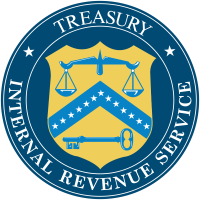Congressman Sues IRS over Failure to Regulate Election Activities of “Social Welfare” Groups

Alleging that the IRS is illegally permitting some tax-exempt non-profits to make political contributions by misinterpreting a key federal campaign finance law, Rep. Chris Van Hollen (D-Maryland) last week filed a lawsuit seeking to force the agency to conform its regulations to the plain meaning of the statute. Joined by co-plaintiffs Democracy 21, Public Citizen, and Campaign Legal Center, Van Hollen filed the lawsuit in federal district court in Washington, DC.
The issue is tax-exempt status and disclosure of donors under the Internal Revenue Code. Section 527 of the Code governs non-profit political fundraising organizations, and requires them to disclose the identities of their donors to the public. Section 501(c)(4) covers social welfare groups, which must be “exclusively” engaged in the “promotion of social welfare,” and need not disclose their donors’ names.
But the IRS, according to the complaint, has flouted the intent of the statute by writing regulations that gut its social welfare requirement. Although the regulation “recognizes that electoral activity does not fall within the scope of activity promoting social welfare,” it also states that it is sufficient for an organization to operate “primarily” to promote social welfare, rather than “exclusively” so.
“By redefining ‘exclusively’ as ‘primarily’ in violation of the clear terms of its governing statutes, the IRS permits tax-exempt social welfare organizations to engage in substantial electoral activities in contravention of the law and court decisions interpreting it,” the complaint concludes. As a result, fake social welfare groups “are permitted to raise funds for electoral purposes without complying with the requirements imposed on 527 political organizations”—a huge advantage for the former.
The complaint alleges that the 501(c)(4) groups shoveled more than $256 million into the 2012 presidential campaign—all while hiding their donors’ names from the public. According to a recent report by the nonprofit Committee for Economic Development, the share of election spending by such groups ballooned from 1% to 30% between 2006 and 2012, with much of the increase occurring after the Supreme Court’s 2010 Citizen’s United ruling that removed limits on corporate election spending.
The vast majority of 501(c)(4) spending benefited Republican candidates, which explains in large part why Democrat Van Hollen has filed the suit, though althere are numerous, and strong, “good government” reasons for opposing anonymous money in politics.
-Matt Bewig
To Learn More:
Democratic Lawmaker Sues IRS Over Rules for Tax-Exemption (by Andrew Zajac, Bloomberg)
Congressman Fights IRS Over 'Social Welfare' (by Ryan Abbot, Courthouse News Service)
Van Hollen v. IRS (Complaint) (pdf)
Why Did IRS Ignore Karl Rove’s Tax-Exempt Organizations while Targeting Small Conservative Groups? (by Noel Brinkerhoff and Danny Biederman, AllGov)
IRS Clashes with Conservative Campaign Groups Claiming Non-Profit Status (by David Wallechinsky, AllGov)
IRS Balks at Investigating Tax-Exempt Organizations Accused of Violating Tax Laws (by Noel Brinkerhoff, AllGov)
- Top Stories
- Unusual News
- Where is the Money Going?
- Controversies
- U.S. and the World
- Appointments and Resignations
- Latest News
- Can Biden Murder Trump and Get Away With it?
- Electoral Advice for the Democratic and Republican Parties
- U.S. Ambassador to Greece: Who is George Tsunis?
- Henry Kissinger: A Pre-Obituary
- U.S. Ambassador to Belize: Who is Michelle Kwan?






Comments